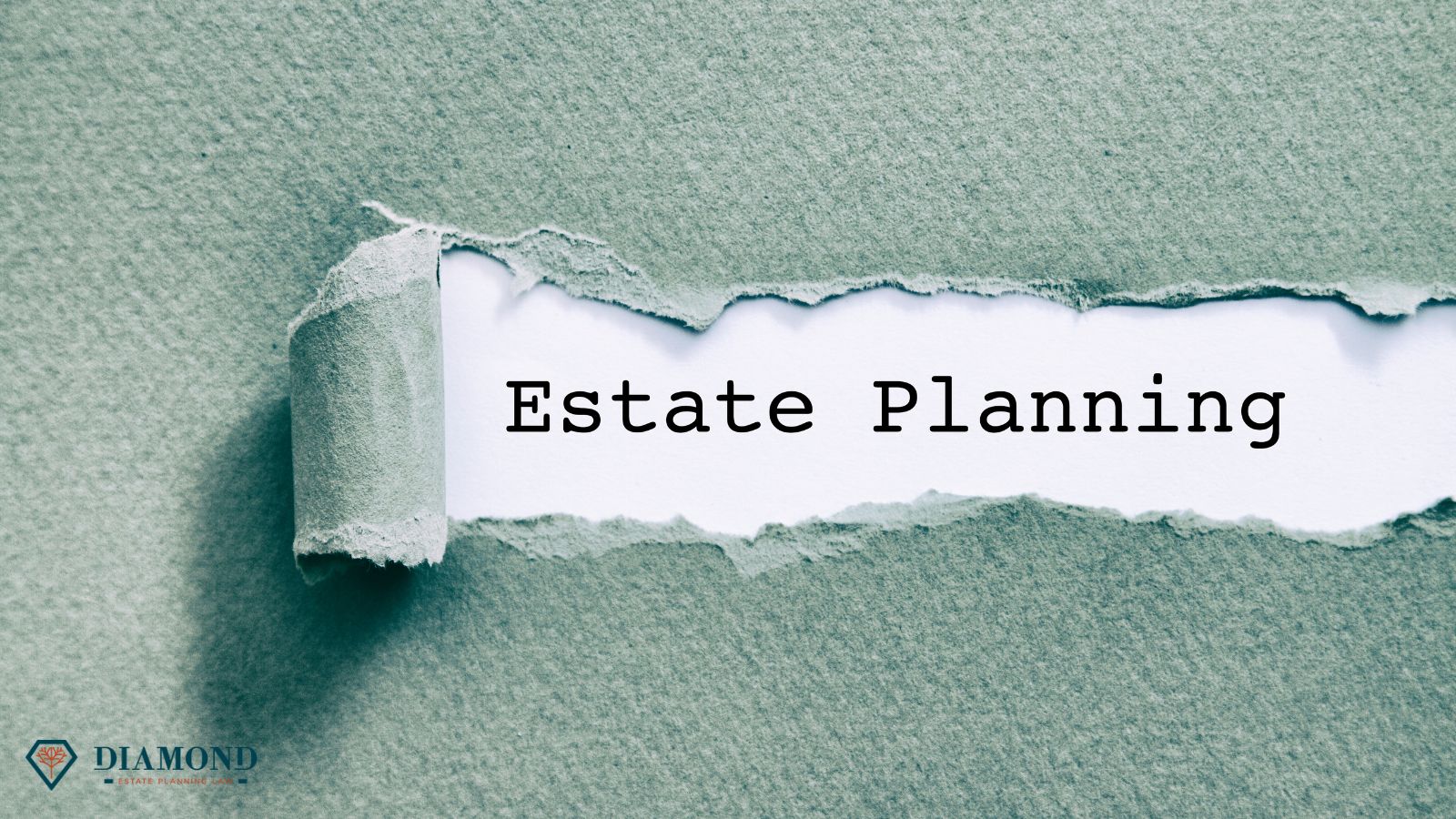Understanding the 4 Key Elements of an Estate Plan
An estate plan can include several different components, depending on the needs of the person it is created for. What actually goes into an estate plan is something that many people have questions about, though – and in this article, we’d like to clear those questions up!
The key elements of an estate plan include:
Not every person will need each component, and some components have several different options to choose from, depending on your needs. There are some components that every person should have, however, such as a will and a power of attorney for healthcare (which allows someone you trust to make medical decisions for you, in the event that you are incapacitated and unable to do so).
This is why it’s important to talk with an experienced estate planning attorney – someone who is able to understand your situation and goals to help you create an estate plan that is customized for you. At Diamond Estate Planning Law, our team is ready to help you!
What Is a Will?
A will is a legal document that tells your loved ones what your wishes are after you pass away. In order to enforce a will, your family members will need to open a probate case with the court.
Many people see the need for a will, but it’s something that is commonly put off for later…but far too often, “later” doesn’t happen. When a person dies without a will, the state of Illinois has a default plan, called the laws of intestate succession, that goes into effect.
If you want something different than this default plan to happen, you must properly create a will and sign it with the right number of witnesses.
What Is a Trust, and Do I Need One?
A trust is an agreement for someone to hold property for someone else’s benefit under the specific terms stated in the trust.
Trusts tend to be the part of an estate plan that many people don’t really understand; it may help to think of it like a suitcase. Essentially, you can put things (your house, your business, your financial accounts) into the suitcase while you are alive and carry it with you. In the event of your death, the person of your choosing can pick up that suitcase and, per the rules that you set up, manage the items inside it.
Not everyone needs a trust, but if you have assets that you don’t want the court to make decisions about, a trust can be a very valuable tool.
It can also be a very effective tax planning tool, and if you own a business, can be an important part of your business succession plan.
An estate planning attorney can answer any specific questions you might have and help you choose the right type of trust for your needs.
What Is a Power of Attorney?
There are a few different types of power of attorney in Illinois:
- Power of Attorney for Property
This is a document that allows you to delegate the power to make decisions regarding your property, assets, and finances to another person, should you become incapacitated or otherwise unable to do so. This type of power of attorney may be created by older people who are concerned about developing memory or cognitive issues, but it may also be created by any adult who wants to make sure their assets and finances are handled by the person of their choice.
- Power of Attorney for Healthcare
This document delegates the power to make decisions regarding your medical care in the event that you are unable to communicate your wishes. Adults of all ages find this part of an estate plan valuable, from young adults going off to college to elderly adults (and everyone in between).
- Living Will (Advance Directive)
A living will or advance directive is a set of instructions for healthcare providers that becomes active if you fall terminally ill and are unable to verbally or consciously communicate your wishes. It provides your wishes to your family and healthcare professionals for conditions like coma, stroke, or dementia; it also directs them as to how you want things like resuscitation efforts and other life sustaining efforts handled.
Your power of attorney is an essential document, but different forms of it are needed in different stages of your life. Your attorney can answer any questions you might have and help you make the right choices as to which ones you need.
What Are Guardianship Provisions?
Often, parents will make informal arrangements with family members or close friends to take care of their kids if something happens to them but unless legal documents are properly completed, these arrangements may not be recognized by the court.
An estate plan that protects minor children has at least 4 major guardianship provisions;
- A provision in your will stating who you want to be their guardian and take care of your children if you pass away;
- A provision in your will and trust explaining who you want to take financial care of your kids and at what age they can have their inheritance.
- A temporary guardianship form to tell the court who you want to take care of the kids if you are incapacitated (until the court appoints a permanent guardian); and
- A power of attorney for minor health care which allows someone else to make medical decisions for your kids if you are incapacitated.
A good estate plan gives parents the option of having one person to care for their kids and a different person manage their money until they reach an appropriate age to manage it themselves..
In order to ensure that the court knows your wishes about who you want to raise your children, if you are unable to do so, you’ll want the right documents as part of your estate plan.
Putting It All Together
As you can see, there are a lot of different options that can be part of your estate plan, but you may not need all of them. In order to build a plan that can meet your needs at every stage of your life, you’ll want to have an experienced attorney by your side.
At Diamond Legal, this is what we do. We’re passionate about helping you protect your family and pass down your legacy. You should have an estate plan that gives you the security you need so that you can focus on what (and who) is truly important to you.
Give us a call today – we’re ready to help you create a plan that’s tailored to your needs!
DISCLAIMER: Any information contained herein is solely for informational purposes. While it is important that you educate yourself, nothing herein should be construed as legal advice or create an attorney-client relationship. For specific questions, we urge you to contact a local attorney for advice pertaining to your specific legal needs.





